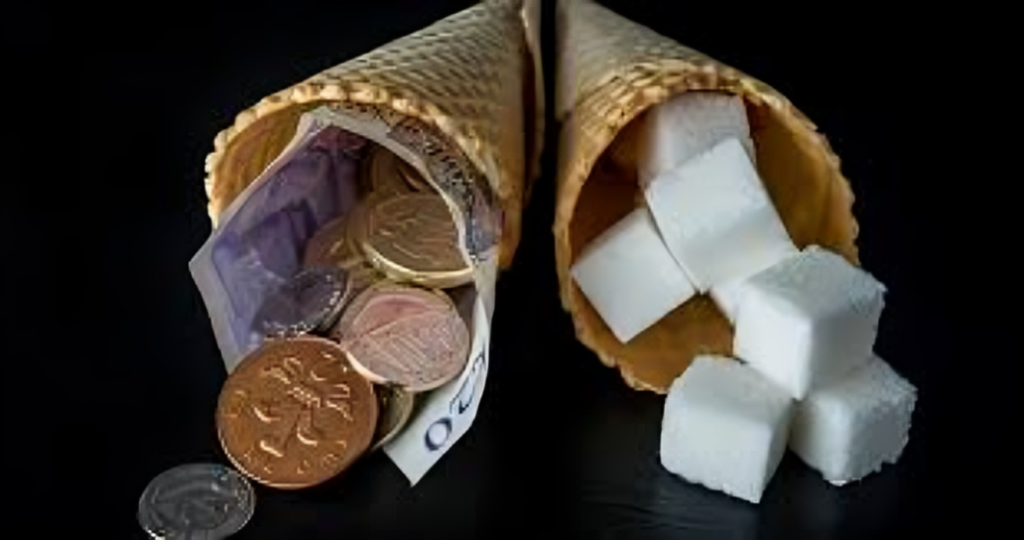Sugar is everywhere, and it’s hard to escape its sweet embrace. From sodas to candies, our lives are filled with sugary delights. But as the health crisis deepens, a new measure has come into play: the sugar tax. This initiative aims to tackle rising obesity rates and promote healthier choices among consumers.
So what exactly is this sugar tax? How does it impact our daily lives and the global economy? As governments around the world grapple with these questions, understanding sugar tax becomes increasingly important for everyone—from health advocates to everyday consumers. Join us as we dive deeper into what a sugar tax entails, why it matters, and who feels its effects most profoundly.
What is Sugar Tax and How Does It Work?

Sugar tax is a levy imposed on sugary drinks and products. It aims to reduce consumption by increasing prices. When consumers buy these items, they pay an additional fee based on their sugar content.
The mechanism is straightforward: manufacturers or retailers add the cost of the tax before selling to customers. This price hike serves as a deterrent, encouraging people to choose healthier alternatives.
Governments often use this revenue for public health initiatives, like nutrition education programs and obesity prevention campaigns. The idea is that higher costs will lead individuals to rethink their beverage choices.
Countries implementing such taxes report varying degrees of success in reducing sugar intake among citizens. Overall trends show potential benefits for community health while also addressing rising obesity rates linked to excessive sugar consumption.
The Purpose of Sugar Tax
The purpose of a sugar tax extends beyond just generating revenue. It’s designed to curb excessive sugar consumption among populations, particularly in countries grappling with rising obesity rates.
By imposing a levy on sugary beverages and snacks, governments aim to discourage individuals from making unhealthy choices. The idea is simple: when prices rise, consumers are more likely to think twice before purchasing that soda or candy bar.
Another key goal is to promote public health awareness. A sugar tax encourages discussions about nutrition and healthy lifestyles. It serves as a catalyst for change by highlighting the hidden dangers of excess sugar intake.
Additionally, the funds generated can be reinvested into health initiatives and education programs. This not only helps mitigate the impact of sugary products but also empowers communities with knowledge about healthier alternatives.
Impact on Health and Obesity Rates
The impact of sugar tax on health and obesity rates is a topic garnering significant attention. This levy aims to discourage excessive sugar consumption, which has been linked to various health issues.
Research indicates that higher prices on sugary beverages can lead to reduced intake. When consumers face increased costs, they often rethink their choices, opting for healthier alternatives instead.
As a result, some studies have shown a gradual decline in obesity rates in regions with implemented sugar taxes. The correlation between decreasing sugary drink sales and improved public health outcomes paints an encouraging picture.
Moreover, these policies tend to spur discussions about nutrition education. Communities begin prioritizing awareness around healthy eating habits as people become more mindful of what they consume.
In this evolving landscape, the potential benefits extend beyond weight management; they encompass overall community well-being and long-term healthcare cost reductions.
Economic Effects of Sugar Tax
The economic effects of a sugar tax extend beyond simple revenue generation. Governments implement this tax to create healthier populations, potentially lowering healthcare costs in the long run.
When sugary drinks and snacks become pricier, consumers often reconsider their choices. This shift can lead to increased demand for healthier alternatives, promoting local businesses focused on nutritious options.
However, not all impacts are positive. Industries reliant on sugary products may face decline, leading to job losses and reduced economic activity in certain sectors. Adjustments take time and can create tension within communities.
Moreover, the additional revenue from sugar taxes can be allocated towards public health initiatives or education programs. This investment further stimulates growth in sectors dedicated to wellness and preventive care.
While the sugar tax aims at encouraging better health habits, its broader economic implications are complex and multifaceted.
Controversies Surrounding Sugar Tax
The sugar tax has sparked significant debate since its inception. Critics argue that it unfairly targets low-income families, who may rely on cheaper sugary options. These groups often bear the brunt of increased prices, leading to accusations of regressive taxation.
Health advocates, however, counter this point by emphasizing the potential long-term health benefits for society as a whole. They believe that reducing sugar consumption could alleviate healthcare costs associated with obesity and diabetes.
Another controversial aspect is how effective these taxes truly are in changing consumer behavior. Some studies show modest reductions in sugary drink purchases, while others suggest little impact on overall consumption patterns.
Additionally, there’s pushback from beverage companies that claim such taxes threaten jobs and hurt small businesses. This ongoing tug-of-war highlights the complexity surrounding public health policies and economic realities alike.
Countries with Successful Implementation of Sugar Tax
Several countries have effectively implemented sugar tax policies, showcasing their potential benefits. Mexico stands out as a prominent example. After introducing the sugar tax in 2014, the country witnessed a significant drop in sugary drink consumption within just one year.
The UK also took strides with its Soft Drinks Industry Levy in 2018. This measure led to reformulations of many popular beverages, resulting in lower sugar content and healthier choices for consumers.
In France, the introduction of a soda tax saw similar outcomes. The focus was not only on reducing consumption but also on raising awareness about sugar’s impact on health.
These examples illustrate that when executed thoughtfully, sugar taxes can generate positive changes in dietary habits while contributing to public health initiatives.
Opposition and Challenges Faced by Sugar Tax
Opposition to the sugar tax stems from various sectors. Critics argue it places an unfair burden on low-income families. They believe that higher prices for sugary drinks disproportionately affect those who can least afford them.
The beverage industry also pushes back. Companies often lobby against the tax, claiming it threatens jobs and economic stability. They stress that consumers should have the freedom to choose without government interference.
Another challenge is public perception. Many individuals see sugar taxes as a paternalistic approach to health, fostering resentment rather than compliance. This attitude can hinder widespread acceptance of such policies.
Implementation hurdles exist too. Ensuring proper collection and allocation of funds requires robust administrative systems, which some regions lack. Without these frameworks, intended benefits may not materialize effectively, leaving room for skepticism about the initiative’s success.
Alternatives to Sugar Tax
There are several alternatives to the sugar tax that aim to tackle excessive sugar consumption without imposing a financial burden. One effective approach is implementing nutrition labeling. Clear and concise labels on food products can empower consumers to make healthier choices.
Education campaigns also play a crucial role. By raising awareness about the health risks associated with high sugar intake, communities can be encouraged to opt for healthier options. Workshops in schools and community centers can promote better dietary habits.
Subsidizing healthy foods is another viable strategy. Making fruits, vegetables, and whole grains more affordable could nudge people away from sugary snacks without punitive measures.
Reformulating products by reducing added sugars can help manufacturers contribute positively while still satisfying consumer demand for sweet flavors. This collaborative effort between companies and public health initiatives has the potential to reshape dietary patterns effectively.
FAQs
What is the main goal of a sugar tax?
The primary aim of a sugar tax is to reduce the consumption of sugary beverages and foods. It encourages healthier choices by making sweetened products more expensive.
Who benefits from this tax?
Public health organizations, as well as individuals, benefit significantly. Healthier populations can lead to lower healthcare costs and improved quality of life.
Are there any downsides to implementing a sugar tax?
Critics argue that it could disproportionately affect low-income families who may rely on cheaper sugary options. Additionally, some fear it might not effectively change consumer behavior.
How do consumers typically react to sugar taxes?
Reactions vary widely. Some embrace the idea for its potential health benefits while others express frustration over increased prices for popular items.
Can businesses adapt if a sugar tax is introduced?
Yes, many businesses adjust their product offerings or reformulate recipes to reduce sugar content in response to changing regulations and consumer preferences.
Conclusion
The Sugar Tax presents a multifaceted approach to tackling the growing concerns of health and obesity rates across the globe. By levying taxes on sugary beverages, governments aim to reduce consumption while generating revenue that can be redirected toward public health initiatives. This strategy not only encourages healthier choices but also fosters awareness around dietary habits.
While there are undeniable benefits associated with the implementation of this tax, it is essential to recognize the controversies and challenges that accompany it. Resistance from various stakeholders highlights differing opinions on its effectiveness and fairness. The economic implications cannot be overlooked either; businesses may experience shifts in consumer behavior as they adapt to new regulations.
Countries like Mexico and the UK have implemented sugar taxes with varying degrees of success, showcasing different methods for addressing sugar consumption without alienating consumers or stifling industry growth. As policymakers consider alternatives or complementary measures alongside a sugar tax, it becomes clear that a collaborative effort will likely yield more sustainable outcomes.
Public discourse continues regarding how best to encourage healthy lifestyles without imposing undue burdens on specific populations. Understanding these dynamics is crucial as we navigate an increasingly complex landscape concerning nutrition and wellness.
As communities strive toward improved public health, ongoing dialogue about strategies such as the Sugar Tax remains vital for informed decision-making moving forward.



